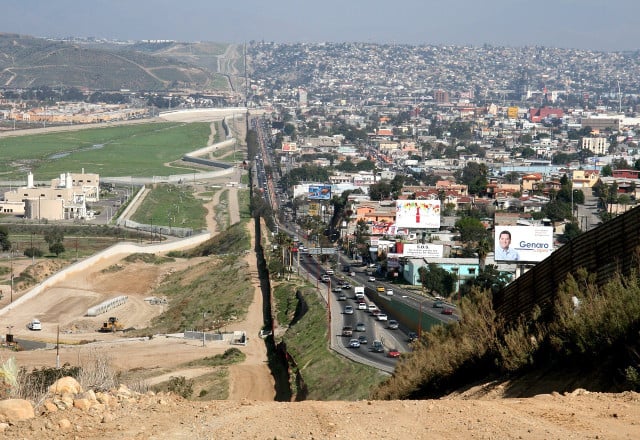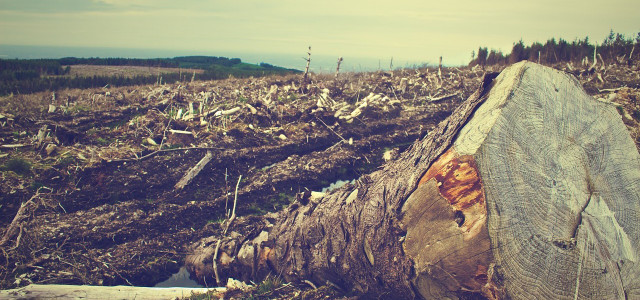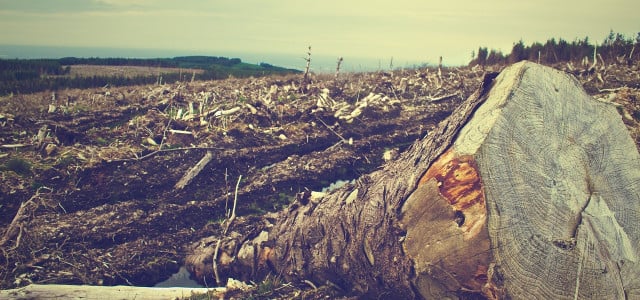Here we bring together a definition of ecocide and its effect in the US. We'll examine the ramifications, underlying issues, and proposed solutions to this problem.
What Does Ecocide Mean?
The word was coined in the 1970s by biologist Arthur Galston, who created the term to call attention to the severity of environmental destruction during times of war.
In more recent definitions, ecocide describes “the mass damage and destruction of ecosystems.” This, according to the UK non-profit Stop Ecocide, is when the ecosystem is so severely damaged, there are long-term or widespread ramifications. The organization suggests that activities that lead to such destruction could in future be addressed by an “ecocide law”.
At present, activists are pushing for ecocide to appear as the fifth statute recognized by the International Criminal Court (ICC) — along with genocide, war crimes, crimes against humanity, and crimes of aggression.
In 2021, this was compounded by the Independent Expert Panel for the Legal Definition of Ecocide, who cemented the definition in writing: “unlawful or wanton acts committed with knowledge that there is a substantial likelihood of severe and either widespread or long-term damage to the environment being caused by those acts.”
This means that there is now groundwork to add a fifth amendment to ICC law, potentially helping to make ecocide a legal offense.
Read more: Rights of Nature: Global Movement, Legal Status & Potential
Can International Law Help in the US?

(Foto: CC0 / Pixabay / WilliamCho)
Although ecocide laws may be a huge stride in the right direction, it’s important to understand that prosecution by the ICC would be difficult in a US context.
According to Human Rights Watch, the US has not accepted membership within the ICC. This has created a complicated relationship between the two. On one hand, the ICC is bound by complementarity, meaning it respects the authority of a country to carry its own laws. However, if a country is unable or unwilling to investigate crimes that fall under ICC statutes, it may open an investigation regardless of that country’s participation or position.
Due to this, some US administrations have taken steps to prevent the ICC’s activity. For instance, during President Trump’s administration, he openly took action against the ICC by applying sanctions on board members.
As a result, the ICC’s authority in the US is limited, and as a knock-on effect to this there are several other areas affected where the ICC might strive to intervene but cannot. We’ll look at an example below.
Ecocide in the US



(Foto: CC0 / Pixabay / WikiImages)
The REAL ID act of 2005 is a law that allowed the US military to wave the National Environmental Policy Act and the Endangered Species Act of 1973, which could otherwise prevent construction on the US-Mexican border. While the act was already in place before the Trump administration began, it meant that congress was able to pass an order allowing additional border security to be built.
This was facilitated by the US government and corporate organizations, which started clearance of the border areas to begin construction. However, while it was designed to prevent human immigration to the States, the additional border also prevented animals from crossing.
The issue was highlighted in a documentary by the activist and journalist Daniel Lombroso, which records the devastating history and effects of animals that used to cross the border are now restricted to one side or the other. While the ICC might have intervened here, unfortunately:
The infrastructural barriers, both physical and political, have eroded the symbiotic relationship between organisms on either side of the border. It has prevented migration, and this, Lombroso claims, is resulting in mass biodiversity decimation and ecocide in the US and Mexico.
As shown in the 2020 documentary, the physical partition between the land was also reinforced by mountaintop mining, involving a highly destructive practice of blasting through the top of mountains to source valuable minerals — regardless of the environmental impact.
Causes of Ecocide



(Foto: CC0 / Pixabay / kzd)
Ecocide has many causes. However, many assert its largest issue is an economic one.
As discussed in the book Ecocide by University of Manchester professor David Whyte, one of the major sources of ecocide are corporations. The book estimates that just 20 corporations have been responsible for 35 percent of all fossil fuel emissions since 1965, and likewise, you can find lists of those involved in air, water, and soil pollution. Many, if not the majority of these companies, are still in operation.
Also interesting: Neither Nestlé nor Shell: This Is the Worst Company in the World
One of the reasons for this is presented in a 2022 paper about climate litigation: The researchers argue that these individuals often held accountable for climate change, namely fossil fuel CEOs, are merely cogs in the machinery of our current economy. In this light, the researchers call for a “rigorous examination of how the structure of contemporary capitalism perpetuates environmental degradation.” So, how do we tackle to real sources of ecocide?
Strategies to Prevent Ecocide
There is no simple solution to these problems.
Some countries, like Russia, France, Ukraine, Moldova, and Vietnam, have already implemented new laws to prevent ecocide, but much more is needed to tackle the global ecocide we face today. While the International Criminal Court declared they would make special consideration for environmental crime in 2016, ascribing blame, as we saw, remains challenging. And taking action is perhaps even more difficult in the US, as the ICC’s authority is limited there.
For some, this means redefining the dimensions of environmental crime at the state level. For others, it is about redefining our relationship with corporations that encourage excessive consumption.
In Robert Agnew’s Strain theory analysis, he presents the idea that eliminating the incentives to damage the environment at an individual level will have a knock-on effect for policy and corporations.
Strain theory is the idea that certain pressures drive individuals to crime. The pressures described are societal factors such as poverty and lack of education. Applying this to environmental crime, Agnew suggests we should examine the psychological and societal pressures that may lead to anti-eco behavior.
The pursuit of status, gender expectations, the need to consume, and the way we compare ourselves to others are examples of what those pressures might be. For instance, a person seeking status might make up for this by buying and consuming. Agnew notes how corporations use marketing and business tactics to make people feel like they have to buy things to feel accomplished. And these motivations continue to push our resources to the limits.
To stop end this cycle, we have to look at our own motivations and drives, which affect what we buy, and how much.
The Role of Individuals
Individual consumers do have a role to play. As well as identifying our relationship with consumption and society, we can all do our share in trying to prevent ecocide. For example:
- Going plastic free or cutting down on plastic, reusing and recycling plastic. Always leave the countryside or beach how you find it and take your rubbish home. Why not encourage your family members by doing a litter pick together before you leave?
- Reduce your carbon footprint by walking, cycling, or using public transport where possible instead of using your car. Or by flying less when possible, especially short haul, as you may be able to use public transport.
- Minimalist living can help you cut back on what you don’t need consistently.
- Recycling and reusing everything you can. For example, find out what upcycling is and which recycling mistakes to avoid.
- Reducing food waste by using seasonal vegetables and fruit from local farms.
- Conserving energy by reducing your energy and water waste.
And equally importantly, start looking at ways you can influence local and national policy, such as petitioning your local government, raising awareness of the concept ecocide, or creating communities where we can tackle these issues together.
Read on:
- Environmental Activism: How To Get Involved in 2023
- What Are CSA Farms? A Guide to Community-Supported Agriculture
- What Is a No Buy Year, and How Do I Start?
Do you like this post?









